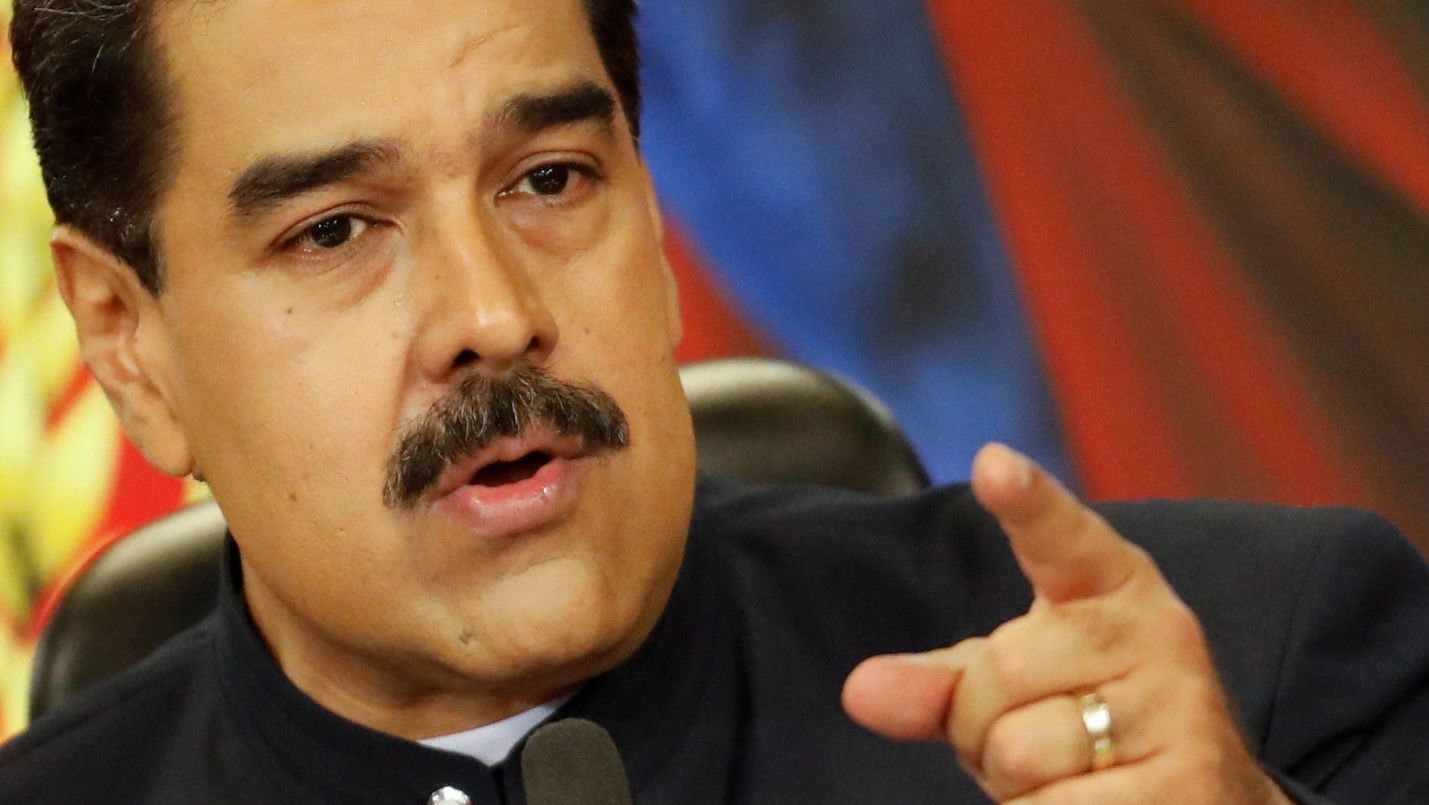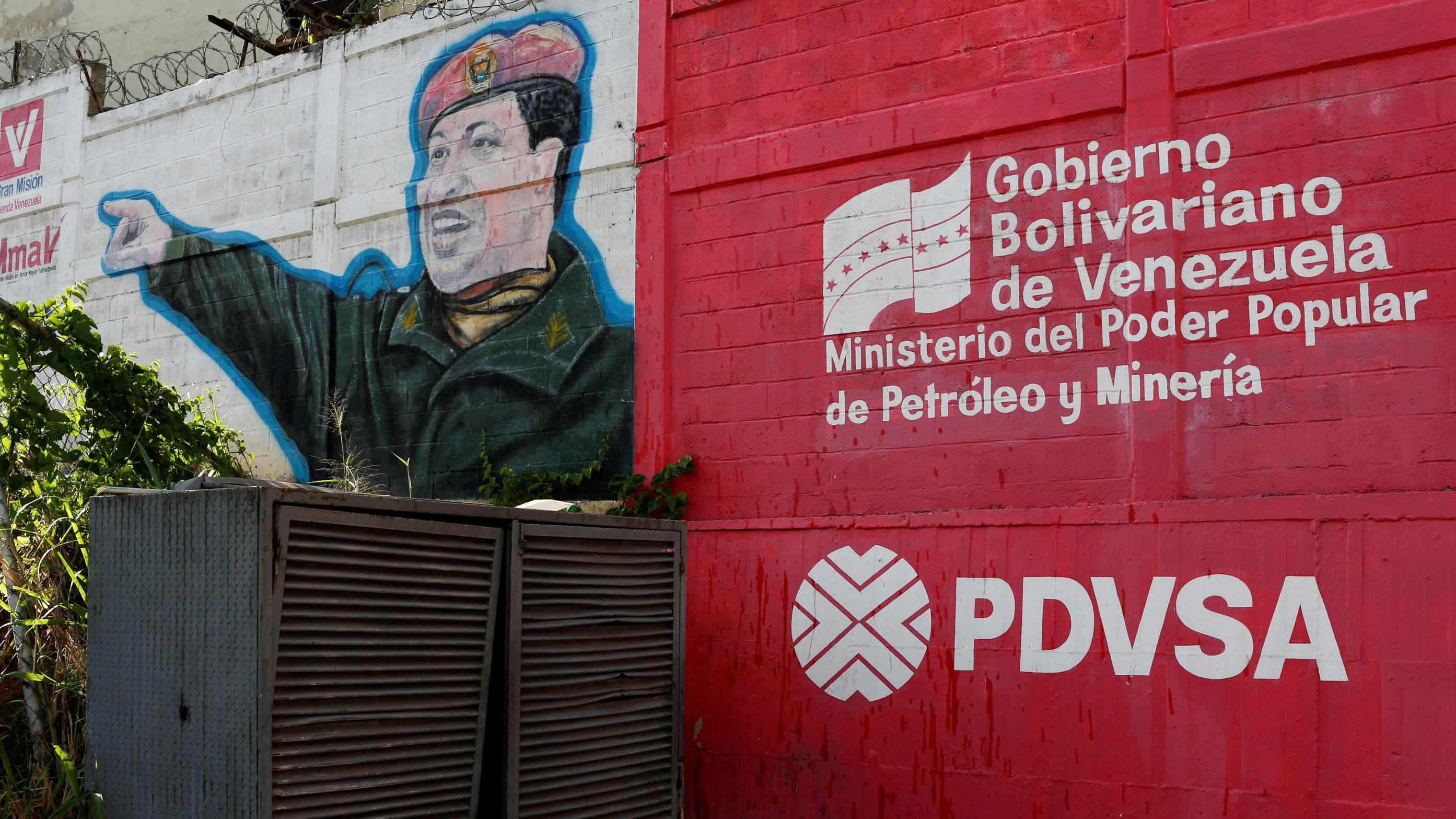
Politics
10:22, 03-Nov-2017
Venezuela risks default as foreign debt restructure planned
CGTN

Venezuela President Nicolas Maduro on Thursday announced plans to restructure his country’s foreign debt, a move that may lead to a default by the cash-strapped nation.
The South American nation’s weak economy has already left its population struggling to find food and medicine, with severe child malnutrition reported in some states.
Maduro vowed to make a 1.1 billion US dollar payment on a bond maturing on Thursday, but also created a commission to study “restructuring of all future payments” in order to meet the needs of citizens.

Venezuela's President Nicolas Maduro (R) speaks next to Vice
President Tareck El Aissami in Caracas,
Venezuela on October 30, 2017. /Reuters Photo
Venezuela's President Nicolas Maduro (R) speaks next to Vice President Tareck El Aissami in Caracas, Venezuela on October 30, 2017. /Reuters Photo
Venezuela has few avenues to do that though because of sanctions by the United States preventing American banks from participating in such deals. Maduro’s most readily available recourse to ease payments is unilaterally halting them.
“I am naming a special presidential commission led by Vice President Tareck El Aissami to begin refinancing and restructuring all of Venezuela’s external debt and (begin) the fight against the financial persecution of our country,” Maduro said in a televised speech.
Foreign debt
Venezuela and state-owned companies have 49 billion US dollars in bonds governed by New York Law and promissory notes, according to New York-based Torino Capital.
The government and state oil company PDVSA owe some 1.6 billion US dollars in debt service and delayed interest payments by the end of the year, plus another nine billion US dollars in bond servicing in 2018.
The next hard payment deadline for PDVSA is an 81 million US dollars bond payment that was due on October 12 but on which the company delayed payment under a 30-day grace period. Failing to pay that on time would trigger a default, investors say.

The logo of the Venezuelan state oil company PDVSA is seen next to a mural
depicting late president Hugo Chavez in Caracas,
Venezuela on March 2, 2017. /Reuters Photo
The logo of the Venezuelan state oil company PDVSA is seen next to a mural depicting late president Hugo Chavez in Caracas, Venezuela on March 2, 2017. /Reuters Photo
That would likely make countries less willing to do business with Venezuela, aggravating shortages of food and medicine and creating further problems for its all vital oil industry that is already hobbled by under-investment.
Wall Street for years pumped billions of dollars into Venezuela by way of bond purchases.
Maduro surprised many by maintaining debt service after the 2014 crash in oil prices, diverting hard currency away from imports of food and medicine toward Wall Street investors.
PDVSA carried out a debt renegotiation in 2016, but that option was taken off the table after US President Donald Trump levied sanctions blocking the purchase of new debt issued by Venezuela and government-owned entities.
Investors puzzled
Investors seemed puzzled by Maduro’s statements on Thursday, which neither clearly declared default nor laid out a path to easing payment burden.
“At no moment did he say they wouldn’t pay, so it’s not a default,” said Alejandro Grisanti of Caracas-based consultancy Ecoanalitica. “But in this environment, Maduro has no way to restructure or refinance as he said today.”
And the presence of El Aissami on the new debt commission makes it a non-starter for US financial institutions. He was blacklisted this year by the US Treasury Department on accusations he is involved in drug trafficking.

The corporate logo of the state oil company PDVSA is seen at a gas station in
Caracas, Venezuela on August 30, 2017. /Reuters Photo
The corporate logo of the state oil company PDVSA is seen at a gas station in Caracas, Venezuela on August 30, 2017. /Reuters Photo
Officials say ideological adversaries are exaggerating problems for political effect. But the situation is a stark contrast to the oil boom years of late socialist leader Hugo Chavez, who spent generously on social welfare programs while borrowing profusely to keep spending at full tilt.
Venezuela’s debt is the highest yielding of emerging market bonds measured by JPMorgan’s EMBI Global Diversified Index paying investors an average of 31 percentage points more than comparable US Treasury notes.
That is nearly double the spread on bonds issued by Mozambique, which is already in default, and more than six times the spread on bonds from war-torn Ukraine.
14417km
Source(s): Reuters

SITEMAP
Copyright © 2018 CGTN. Beijing ICP prepared NO.16065310-3
Copyright © 2018 CGTN. Beijing ICP prepared NO.16065310-3